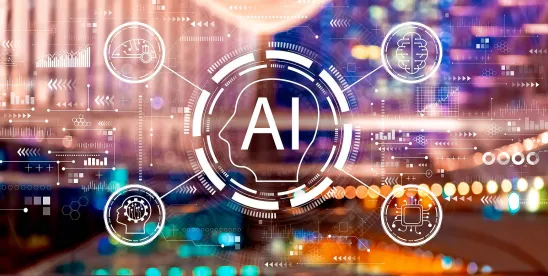As federal agencies prepare for the change in administration, agency action continues at a rapid pace―including several recent AI-related measures by the U.S. Department of Commerce and U.S. Office of the Director of National Intelligence (“ODNI”). In late November, the Department of Commerce’s Artificial Intelligence Safety Institute (“AISI”) established a new taskforce to research and test AI models in areas critical to national security and public safety, while ODNI released guidance on the acquisition and use of foundation AI models.
AISI’s Testing Risks of AI for National Security (“TRAINS”) Taskforce is intended to operationalize the requirements set out in October’s National Security Memorandum on AI (“AI Memo”), pursuant to Executive Order (“EO”) 14110 and advance the “whole-of-government approach to AI safety.” Together, the AI Memo and EO 14110 direct the national security (and adjacent) agencies to, broadly, responsibly advance the government’s AI capabilities and develop an AI governance framework. According to the Department of Commerce, TRAINS will bring together a range of stakeholders to collaborate on identifying, measuring and managing the developing impacts of AI on national security and public safety domains. Relevant areas include radiological and nuclear, chemical and biological, cybersecurity, critical infrastructure, conventional military capabilities and others. Initial representation on the taskforce will include members of the Department of Defense, Department of Energy and ten of its National Laboratories, Department of Homeland Security including the Cybersecurity and Infrastructure Security Agency, and National Institutes of Health at the Department of Health and Human Services. The taskforce is just one of many initiatives stemming from the White House AI Memo and EO 14110. The AISI, housed under the National Institute of Standards and Technology, plays a key role in a number of AI and national security related measures.
In response to continuing obligations under a less recent directive that remains critical to the data protection and national security space, EO 12333, ODNI issued the Common Intelligence Community Interim Guidance Regarding the Acquisition and Use of Foundation AI Models (“Interim Guidance”). The Interim Guidance is intended to enable the intelligence community (“IC”) to lawfully conduct intelligence activities in the era of powerful AI in response to the directives of EO 14110 and the AI Memo. ODNI reiterates that the IC is authorized to collect, retain and disseminate U.S. person information for approved purposes under EO 12333, but must consider the implications of doing so via AI foundation models, which process massive amounts of commercially available and other information, and were not the type of technology initially considered when EO 12333 was developed. The guidance sets out relevant parameters and definitions for doing so, including:
- when a foundation model is considered to be “acquired” by the IC (i.e., hosted or accessed in a manner different than what is available to the general public);
- considerations for modifying or augmenting an acquired foundation model (i.e., following all existing legal and policy limitations such as the Foreign Intelligence Surveillance Act); and
- considerations for foundation model prompts and retention of outputs.
The Interim Guidance clarifies that “acquiring” a foundation model does not necessarily mean the IC is acquiring the training data, but this depends on the facts and circumstances. The guidance directs the IC to refer to protections and principles in existing frameworks and guidance, specifically naming documents such as the Framework to Advance AI Governance and Risk Management in National Security.
As we discussed in previous coverage of this topic, while early activities under the AI Memo and EO 14110 will tend to more immediately impact the government sector, the private sector is already involved at certain levels in coordinating with government stakeholders as efforts continue to develop in this area. Additionally, though the administration change may impact the contours of AI governance, companies supplying AI models to the IC or government more broadly may encounter an increasingly complex set of considerations during the procurement process as well.



 />i
/>i

